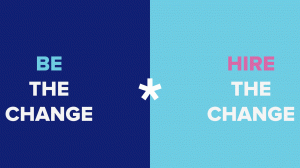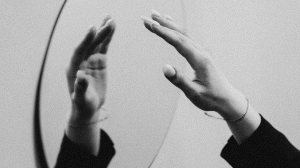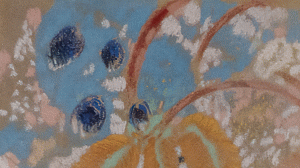Header: James Wainscoat via Unsplash.
As we enter the second half of 2020, it seems an appropriate time to hit pause for a moment and look back at the first six months of this new decade. Back in January 2020, in my very first blog post of this wellbeing series in collaboration with tbd* – “Wellbeing tools for a new decade” – I introduced the concept of setting intentions instead of resolutions. I had described the process of setting intentions to be about “adjusting your inner compass to set the right course as you sail through the uncertain waters of life.” Surely, you’ve had to navigate some stormy seas in the recent months! Do you remember what intentions you had set for yourself? Were you able to live them fully even as COVID-19 forcefully disrupted your life? What challenges did you encounter and were you able to overcome them? What did you discover about yourself throughout the process that you didn’t know before? These are just some of the questions I invite you to sit with for a while. And if at the beginning of the year you had shared your intentions with an accountability buddy, now is a good time to invite them for another chat to share your reflections with them.
Importantly, please know that it is okay if you cannot answer all the questions. Sitting with the questions is as important (if not more) than finding the answers. In Live the Questions, poet and novelist Rainer Maria Rilke reminds us,
“I would like to beg you, dear Sir, as well as I can, to have patience with everything unresolved in your heart and to try to love the questions themselves as if they were locked rooms or books written in a very foreign language. Don’t search for the answers, which could not be given to you now, because you would not be able to live them. And the point is, to live everything. Live the questions now. Perhaps then, someday far in the future, you will gradually, without even noticing it, live your way into the answer.”
I hope that by removing the pressure of “having to answer the questions”, you can fully immerse yourself in this self-reflection process.
One of the things I discovered about myself during the long lockdown is that I did pretty well coping with it all alone. Don’t get me wrong, it wasn’t all happy and smooth (not at all!), but I was okay dealing with it whilst living alone and not being able to interact with others face-to-face. However, many dear friends of mine and fellow changemakers really struggled with feelings of loneliness, which is what inspired me to write this piece. How about you? Did you experience loneliness in the past six months? Loneliness, unlike solitude, feels empty and alienating. But it can be turned into something more positive, like solitude, which, as author Mark Matousek writes, “is rich, inspiring, and restful.” This is why today’s wellbeing recipe guides you through an expressive writing process to recognise that time alone is precious and to find your inner refuge.
The following practice has been taken from Writing to Awaken: A Journey of Truth, Transformation, and Self-Discovery by Mark Matousek. It introduces five tools to cultivate and protect your inner refuge:
- Practice regularly: If possible, write at the same time each day for at least five consecutive days a week.
- Make a nest: If possible, write in the same place — quiet and comfortable.
- Leave the outside world outside: Develop a meditation, yoga, breathing, or prayer practice to help you settle the mind and focus before writing.
- Emphasise love, not fear: Try to free writing from pain, self-judgment, or obligation.
- Enjoy your solitude: Learn to enjoy your own company.
I hope that by the end of the process you will feel more equipped and resilient to jump back to be an active co-creator with life and navigate successfully through the next six months of 2020.
You can access the full guidelines here. The next blog post will offer another practice to cultivate resilience that you can also apply in your team.
About Greta and Recipes for Wellbeing
 Greta Rossi is a changemaker involved in multiple not-for-profit initiatives, including Recipes for Wellbeing, Akasha Innovation, Pitch Your Failure, and ChangemakerXchange. Recipes for Wellbeing works towards shifting the culture of changemaking to include a focus on holistic wellbeing to enable anyone to contribute more effectively to creating positive change in the world. From freely accessible wellbeing recipes, through wellbeing talks and workshops, to immersive wellbeing labs, we make wellbeing accessible to changemakers and their teams. If you’d like to host a talk, workshop, or retreat for your team or organisation, reach out to us at info@recipesforwellbeing.org.
Greta Rossi is a changemaker involved in multiple not-for-profit initiatives, including Recipes for Wellbeing, Akasha Innovation, Pitch Your Failure, and ChangemakerXchange. Recipes for Wellbeing works towards shifting the culture of changemaking to include a focus on holistic wellbeing to enable anyone to contribute more effectively to creating positive change in the world. From freely accessible wellbeing recipes, through wellbeing talks and workshops, to immersive wellbeing labs, we make wellbeing accessible to changemakers and their teams. If you’d like to host a talk, workshop, or retreat for your team or organisation, reach out to us at info@recipesforwellbeing.org.










